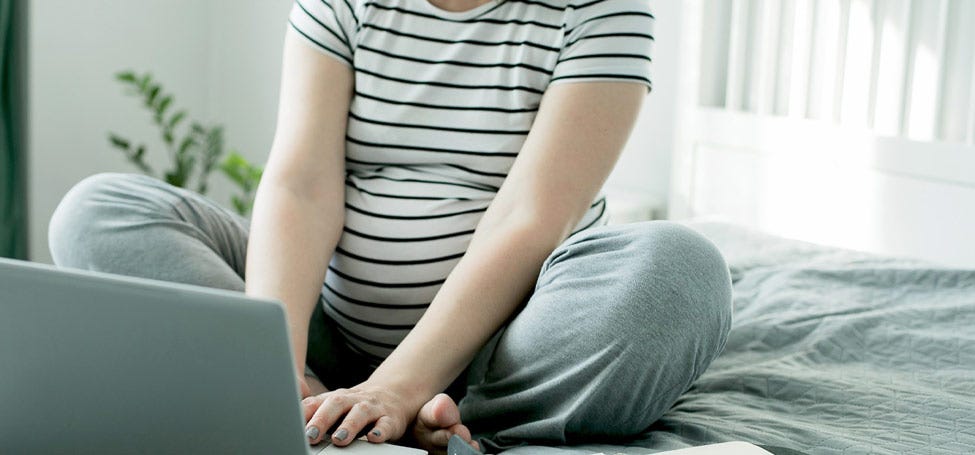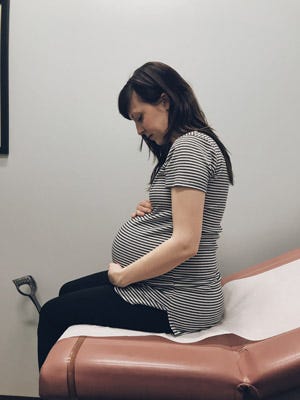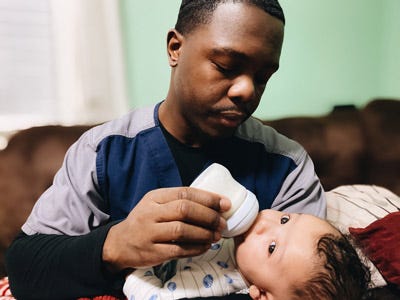
WHAT YOU NEED TO KNOW ABOUT COVID-19 IF YOU’RE PREGNANT OR BREASTFEEDING
As the world continues to grapple with how to respond to the COVID-19 (coronavirus) pandemic, pregnant and breastfeeding mothers have unique concerns and questions regarding how to best protect their babies and themselves. Here are some preventative best practices and what to do if you, as a pregnant or breastfeeding mom, are exposed to or contract COVID-19.
In general, pregnant women should be cautious and proactive because they’re at a higher risk of contracting viral illnesses due to changes in their immune systems. The studies on coronavirus are still very limited, but we know that women who get influenza while pregnant are at a higher risk of developing pneumonia, so it’s recommended that pregnant women err on the side of caution in regards to the coronavirus.
While social distancing and proper hand-washing techniques are crucial, pregnant women should continue going to their prenatal doctor’s appointments. If you plan to have a hospital birth, it’s important to stick to that plan, especially if you have a “high-risk” pregnancy (complicated by conditions such as preeclampsia or gestational diabetes).
If you think you may have been exposed to or have contracted COVID-19, please call your doctor’s office, prior to going in to be tested, to see how you should best proceed for an evaluation. Any pregnant woman with fever, cough, and difficulty breathing, however, should be seen by a doctor as soon as possible.
As preventative measures, wash your hands frequently, especially before eating and after being out in public, avoid crowds and gatherings, and minimize contact with anyone who currently has or has been exposed to coronavirus.
COVID-19 and Pregnancy
If you do have COVID-19 and are pregnant, it’s important to plan for a hospital birth due to your risk of complications like pneumonia, and also to have your newborn closely monitored for the development of viral symptoms.
To date, there have been no confirmed cases of transmission of coronavirus from mom to baby during pregnancy or birth. Umbilical cord blood, amniotic fluid and breast milk samples from women with COVID-19 earlier this year all tested negative for the virus.
There have been reports in China of COVID-19 possibly being linked to preterm labor, though there are no reports of preemies who have tested positive for coronavirus at this time. In general, babies born prematurely are at a higher risk of contracting other community-acquired viruses, such as influenza and RSV.
COVID-19 and Breastfeeding
Additionally, there have been no reports of mothers with COVID-19 passing it to their newborns via breast milk. For most infections, it’s recommended that infected mothers continue to breastfeed their babies because the milk contains helpful antibodies and other immune proteins. The CDC recommends that mothers with coronavirus continue to provide breast milk to their babies while taking the following precautions to prevent spreading the virus:
- Wash your hands before touching and feeding your baby.
- Wear a mask while breastfeeding.
- If pumping, make sure to wash your hands before pumping and thoroughly clean pump parts after each pumping session.
- Consider having someone who is well feeding your baby pumped milk.
Parents who have been exposed to or have contracted COVID-19 should take similar precautions if they are formula feeding or combination feeding the baby.
Lowering the Risk of COVID-19 for Newborns
While the chances of a newborn getting sick from the virus are low, there is a risk of community-acquired spread. With a newborn, it’s recommended to take these precautions:
- Wash your hands or use hand sanitizer every time you touch your baby.
- Limit visitors in the first few weeks after giving birth and make sure that people who have recently been sick and/or possibly exposed to COVID-19 do not visit. Visitors wearing masks will not be enough to protect a newborn from this virus.
- Breastfeed, if possible, to help bolster your baby’s immunity. Even partial breast milk will make a big difference in helping your baby fight off infection!
- If you are pumping breast milk, make sure to clean and disinfect your pump and all parts before and after every use.
- Call your baby’s doctor if you have any concerns about his or her symptoms, including a fever, quick breathing, cough, and/or refusing to eat.
One misconception about COVID-19 is that it’s “just like the flu” and therefore, nothing to worry about. To be clear, this is a new virus that none of us are immune to, there isn’t a vaccine available, and the fatality rates are much higher than that of the flu.
My advice is to be proactive, keep washing your hands, and seek medical attention if you or your baby are experiencing any of the symptoms associated with the coronavirus. For the most up-to-date recommendations, please visit the Center for Disease Control’s website.

About the Author
Dr. Jessica Madden is a board-certified pediatrician and neonatologist who has been taking care of newborn babies for over 15 years. She is currently on staff in the neonatal intensive care unit (NICU) at Rainbow Babies and Children’s Hospital in Cleveland, Ohio. She also provides in-home newborn medicine and lactation support to new mamas and is currently working to become an IBCLC.
Information provided in blogs should not be used as a substitute for medical care or consultation.
Originally posted at https://aeroflowbreastpumps.com/blog/need-to-know-coronavirus-pregnancy-breastfeeding


